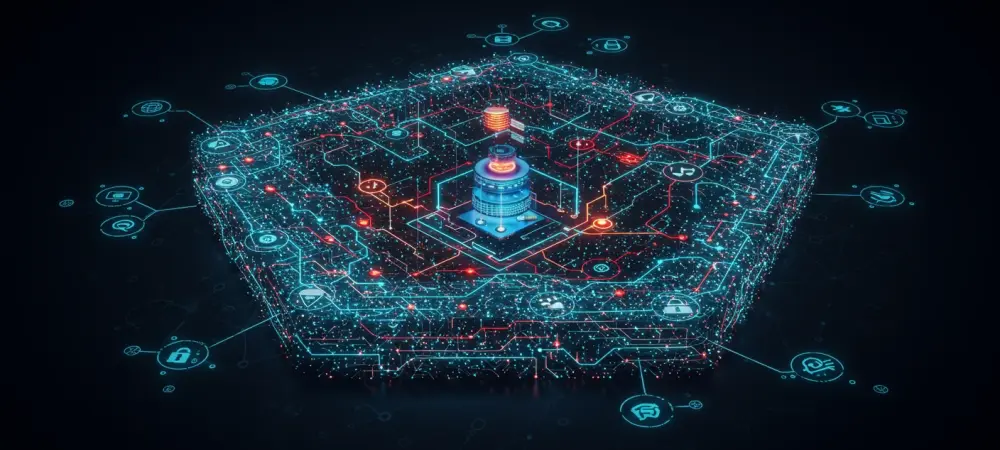Introduction to a Critical Policy Shift
In a bold move that underscores the escalating concerns over national security in the digital realm, the Pentagon has recently banned Chinese nationals from coding in Department of Defense (DoD) cloud systems, marking a significant pivot in defense technology practices. This decision, driven by fears of potential espionage and cyber vulnerabilities, highlights the critical role that cloud security plays in safeguarding military operations amid a tense geopolitical landscape. As cyber threats grow more sophisticated, the involvement of foreign nationals in such sensitive areas has become a red flag for policymakers. This analysis delves into the background of this policy change, traces the evolution of Pentagon cloud security practices, examines stakeholder perspectives, explores future implications, and offers a conclusive reflection on securing defense technology.
Historical Evolution of DoD Cloud Security Practices
Past Practices and Policy Transitions
The DoD once permitted Chinese nationals to contribute as coders on cloud systems under strict supervision by U.S. contractors, a practice that began over a decade ago as a cost-effective solution to meet the growing demand for technical expertise. Reports from credible outlets like ProPublica have revealed that hundreds of foreign developers, including those from China, were involved in these projects under major tech contractors. However, mounting scrutiny over the past few years, fueled by rising tensions with geopolitical rivals, has pushed the Pentagon to reassess this long-standing arrangement.
Scale of Involvement and Emerging Concerns
The scale of foreign involvement was significant, with contractors employing offshore teams to handle complex coding tasks for critical military infrastructure. Official DoD statements indicate that while these workers operated under oversight, the potential for data leaks or embedded vulnerabilities grew as a pressing concern. This shift in perspective reflects a broader recognition of the risks tied to outsourcing sensitive work, prompting a reevaluation of policies to prioritize domestic control over strategic systems.
Incidents and Criticisms
A notable case involves Microsoft, a key player in the $9 billion Joint Warfighting Cloud Capability contract, which relied on China-based engineering teams for portions of its DoD work. The use of “digital escorts” to monitor these foreign coders was intended as a safeguard, but critics have pointed to whistleblower accounts describing this oversight as inadequate and prone to lapses. Such real-world examples have fueled debates about whether these measures truly protected against potential security breaches, amplifying calls for stricter regulations.
Stakeholder Reactions to the New Ban
Defense Leadership’s Firm Stance
Defense Secretary Pete Hegseth has championed this ban with an “America first” mindset, labeling the prior practice of employing foreign coders as a glaring vulnerability that jeopardized national interests. His insistence on placing security above corporate profit motives underscores a decisive shift in DoD priorities. Hegseth’s rhetoric signals a zero-tolerance approach to risks in defense technology, setting a precedent for how future contracts will be managed.
Industry Responses and Adjustments
Microsoft, under intense scrutiny, has responded by halting the use of China-based teams for DoD projects and committing to a no-cost audit to identify any lingering vulnerabilities. Other DoD vendors are also under review, with many pledging to align with the new guidelines by eliminating foreign involvement in sensitive systems. These actions reflect an industry-wide acknowledgment of the need to adapt to heightened security demands, even at the expense of operational convenience.
Ground-Level Challenges and Oversight Gaps
Anonymous sources, including digital escorts tasked with monitoring foreign coders, have raised alarms about the lack of robust policies to prevent potential abuse. Their concerns highlight practical challenges in enforcing oversight, suggesting that even well-intentioned measures may fall short without comprehensive frameworks. This perspective adds a layer of complexity to the policy debate, illustrating the difficulties of balancing talent needs with stringent security protocols.
Future Outlook for Stricter Cloud Security Measures
Anticipated Changes and Obstacles
The ban on Chinese coders and ongoing investigations are likely to reshape the DoD’s reliance on private tech providers, pushing for more localized talent pools and tighter vetting processes. From the current year onward, contractors may face mandates to build domestic expertise, potentially over a span to 2027, as a means to reduce external risks. However, this transition could introduce challenges such as talent shortages and higher costs, testing the feasibility of these stringent policies.
Evolving Cyber Threats and Policy Adaptation
As cyber threats evolve in response to these restrictions, the DoD may need to invest in advanced detection tools and continuous monitoring to stay ahead of potential breaches. The risk of adversaries exploiting alternative avenues for infiltration remains a concern, necessitating adaptive strategies. This dynamic environment suggests that policy adjustments will be an ongoing process, requiring agility from both government and industry stakeholders.
Wider Impacts on Security and Global Ties
On a positive note, these policies could significantly enhance protection against espionage and cyber risks, fortifying national defense infrastructure. Conversely, they may strain international tech partnerships, particularly with allies who rely on collaborative frameworks for innovation. The broader trend of tightening controls over foreign involvement in critical U.S. systems might also inspire similar measures in other federal agencies or among allied nations, reshaping global defense strategies.
Securing Defense Technology: Reflections and Next Steps
Looking back, the Pentagon’s ban on Chinese coders addressed critical vulnerabilities exposed by past practices, with Microsoft’s cooperation and ongoing investigations marking pivotal steps toward accountability. The decision underscored a collective realization that national security must supersede profit in defense contracts, while oversight gaps revealed the fragility of prior arrangements. Rather than merely reiterating these challenges, the focus now shifts to actionable solutions— implementing rigorous third-party audits, fostering domestic tech talent, and investing in cutting-edge cybersecurity tools. These steps, coupled with international dialogue to balance security and collaboration, offer a pathway to safeguard military systems against emerging digital threats, ensuring that vigilance remains at the forefront of defense innovation.

